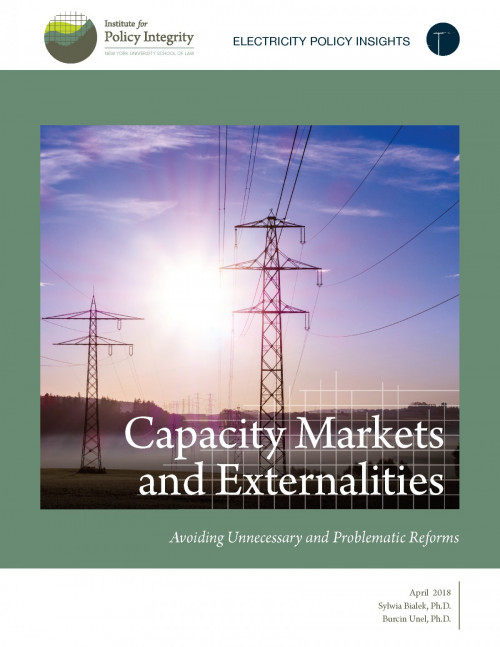Many states are taking action on climate change by paying zero- and low-emitting electricity generators for avoiding the emissions that fossil-fuel-fired resources would otherwise emit. These “externality payments” help level the playing field between emitting and non-emitting generators. Critics of these policies argue that these payments might negatively affect the efficiency of wholesale electricity markets by reducing capacity prices, which heavily affect how generators enter and exit the market.
Our report shows why the premises underlying recent reforms, which seek to shield capacity markets from the potential price impact of pollution externality payments, are flawed. The report argues that redesigning capacity markets in reaction to these state policies shows concern for only private generation costs and disregards the fact that externality payments help correct market failures associated with air pollution, improving economic efficiency.
Rushed market design changes based on the unsupported assumption that state policies negatively affect capacity markets may actually harm the functioning of the markets, while potentially undoing states’ efforts to combat pollution and climate change.

